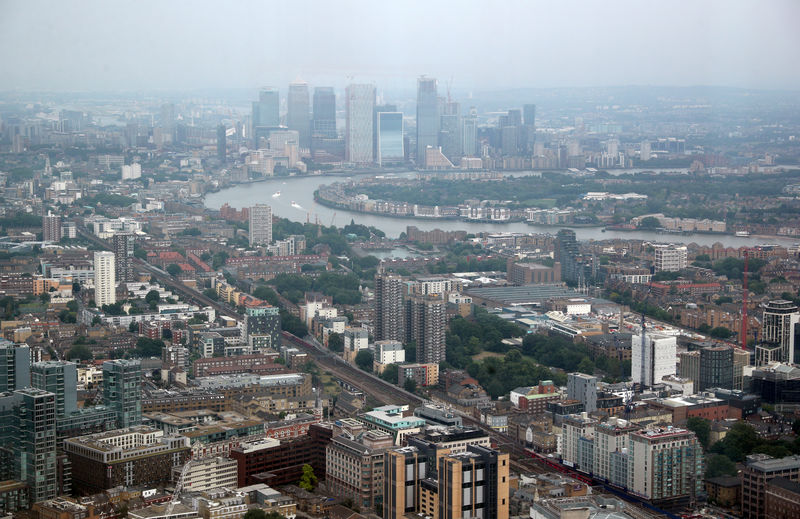By David Milliken
LONDON (Reuters) - British manufacturers expect the most widespread drop-off in orders for a decade over the next three months due to the slowing global economy and Brexit uncertainty, a survey by the Confederation of British Industry showed on Tuesday.
The CBI said its quarterly expected orders balance sank to -19 in October from +10 in July, the lowest since April 2009, driven by a steep drop in orders expected from overseas.
Britain is due to leave the European Union on Oct. 31 if Prime Minister Boris Johnson can persuade parliament to rush through a new exit deal he negotiated last week, though a delay looks likely if lawmakers want more time for scrutiny.
On top of this, the trade conflict between the United States and China is hitting demand for exports far beyond those two countries' borders.
Factories said they expected their competitiveness to deteriorate at the fastest rate since the survey began more than 40 years ago, due to a record amount of political uncertainty and the biggest concern about trade barriers since 1983.
Economist Samuel Tombs of Pantheon Macroeconomics described the CBI data as "dire".
"Manufacturers appear to be experiencing the full force of the global downturn and aren't enjoying any relief this time from preparations ahead of the October Brexit deadline," he said.
In October alone, manufacturers reported the biggest fall in export demand since December 2009, during the depths of the financial crisis, while the overall orders balance for October sank to -37 from -28 in September, below all forecasts in a Reuters poll and its lowest since March 2010.
"A combination of Brexit uncertainty and weaker global growth are clearly hitting sentiment and export prospects, with job prospects at their weakest since the global financial crisis," CBI chief economist Rain Newton-Smith said.
The CBI data has not always matched subsequent official measures of industrial output, particularly at times when political turmoil has hit sentiment.
But it bodes poorly for business investment and hiring intentions.

Firms planned to scale back investment on the broadest basis since 2009, while hiring - which has held up well by comparison since 2016's Brexit referendum - is expected to be the weakest in a decade as well.